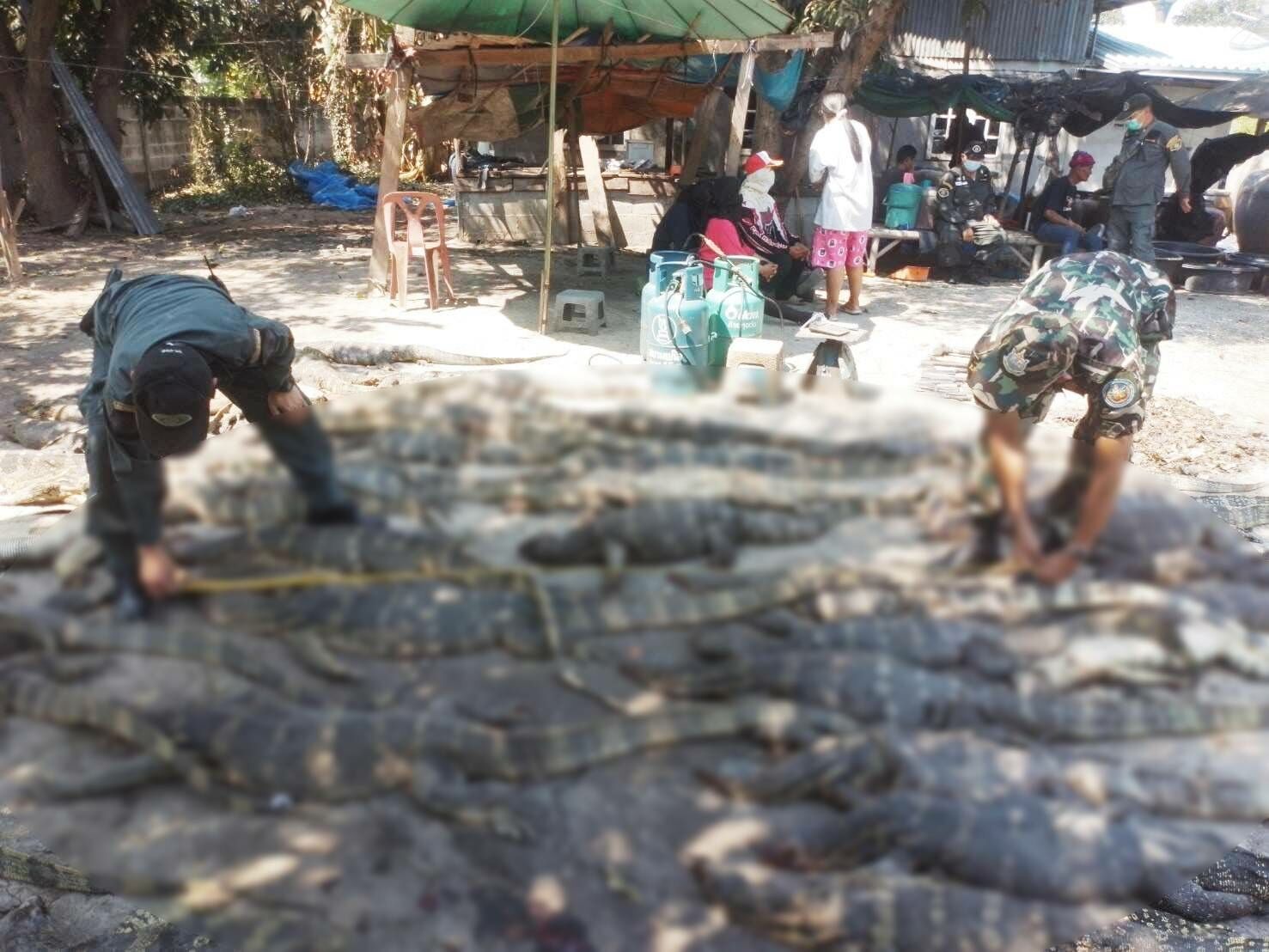2 men arrested for animal trafficking, over 100 carcasses seized

Two men were arrested yesterday in the central province of Suphan Buri for trafficking protected animals. The authorities seized over 100 carcasses of monitor lizards and turtles, making the largest number on record.
Authorities from the Natural Resources and Environmental Crime Division, or Greencop, and U-Thong Police Station were notified that a house owner, later identified as 73 year old Mon Nerajatee, was illegally disassembling and trading protected water monitors and turtles.
The authorities raided Mon’s house in the U-Thong district of Supha Buri yesterday and found five of his employees disassembling carcasses of water monitors in the house. Mon and the carcass buyer, 67 year old Prasit Lekphet, were also present.
During the raid, 32 living water monitors, 59 monitor lizard carcasses, and 28 turtle carcasses were seized, along with disassembling equipment such as knives, axes, and hammers.
Water monitors, also known as Asian water monitors, are on the wildlife protection list under the Wildlife Preservation and Protection Act. The turtles that were seized were snail-eating turtles, black marsh turtles, and Siamese box terrapins, which are also protected wildlife.
The five employees claimed they were unaware that the animals were protected and were being paid 300 baht per day to disassemble them.
Mon admitted to illegally trading the protected animals. He bought living animals from residents in the area, then killed and disassembled them before selling them to Prasit.
The five employees were not charged, but Mon and Prasit faced four charges for violating Sections 17, 29, 89, and 92. They were accused of possessing and trading protected animals without permission, which could result in imprisonment of up to 10 years, a fine of up to 1 million baht, or both.
The authorities revealed that the number of water monitor carcasses seized at Mon’s house was the largest on record in Thailand.
The report did not reveal the clients who bought the monitor lizards and their intended purpose. It is believed that some groups of people consume them for health benefits.
According to a report by the BBC, agricultural and medical researchers have attempted to conduct studies on water monitors, but legal limitations and conditions have hindered their research.
Professor Jitkamon Thanasak, of the Faculty of Veterinary Medicine at Mahidol University, conducted initial studies that show the water monitor’s blood can inhibit the growth of cancer cells and some bacteria. The professor has also attempted to see its effects on Covid-19.
Latest Thailand News
Follow The Thaiger on Google News:


























